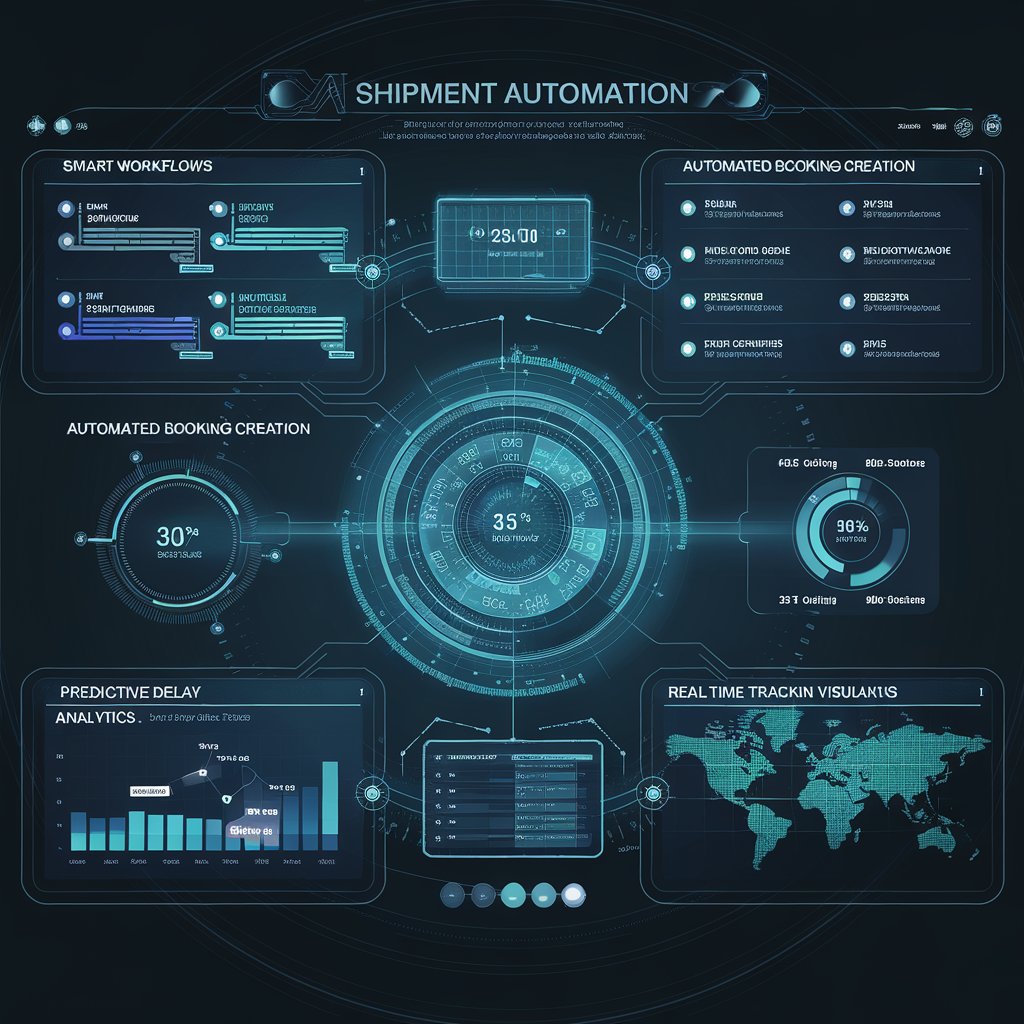AI Shipment Automation: The Future of Smart Logistics Operations

Introduction
That’s why Linbis developed AI shipment automation — an intelligent system that uses artificial intelligence to automate every stage of the shipment lifecycle.
From booking to delivery confirmation, Linbis transforms freight operations into a seamless, self-learning logistics ecosystem.
Step 1: Centralized Shipment Intelligence
Linbis starts by consolidating every shipment data source into one AI-powered platform:
- Booking and quote systems for order creation.
- Carrier integrations (air, ocean, and ground) for live tracking.
- Customs portals for document submission and clearance updates.
- Accounting systems for automatic billing and reconciliation.
- Customer communication tools for notifications and status alerts.
This unified data environment gives the AI full visibility across every shipment and operation.
Step 2: Automated Shipment Creation and Booking
Linbis automates shipment creation directly from multiple channels:
- Emails or web forms: AI extracts booking details automatically.
- CRM systems: auto-generates shipments from customer orders.
- EDI/API integrations: creates and syncs bookings from partner platforms.
The system validates data, selects optimal carriers, and even suggests best routes or modes using predictive intelligence — reducing manual entry time by up to 90%.
Step 3: AI-Driven Workflow Automation
Once a shipment is created, Linbis activates end-to-end automation workflows:
- Generates documents (B/L, invoices, packing lists) automatically.
- Triggers customs filing and compliance verification.
- Updates status and ETAs based on carrier data.
- Sends notifications to customers and partners in real time.
- Creates tasks for exceptions or approvals automatically.
This process ensures every shipment follows a consistent, error-free flow — without human intervention.

Step 4: Predictive and Adaptive Decision-Making
Linbis doesn’t just automate — it learns.
Through AI models and predictive analytics, it can:
- Anticipate delays and suggest re-routing before problems occur.
- Forecast shipment demand and optimize scheduling.
- Detect billing discrepancies automatically.
- Recommend carriers based on past performance and cost efficiency.
The system adapts continuously, creating a self-optimizing logistics environment.
Step 5: Real-Time Tracking and Exception Management
Linbis provides full visibility throughout the shipment journey:
- Real-time tracking for all modes and carriers.
- Predictive ETAs with live performance updates.
- Automated exception alerts for delays or compliance issues.
- Intelligent ticketing for quick resolution.
AI ensures logistics teams stay proactive instead of reactive, improving delivery reliability and customer experience.
Step 6: Analytics and Continuous Optimization
Linbis uses data collected from automated shipments to enhance operations further:
- Identifies inefficiencies in routes or carriers.
- Calculates cost-per-shipment metrics automatically.
- Tracks automation impact on time savings and error reduction.
- Suggests process improvements for future automation cycles.
Over time, Linbis becomes a learning logistics engine that continually improves itself.

Advanced Features
- AI-powered booking and routing recommendations.
- Smart document automation and validation.
- Predictive shipment delay detection.
- Multi-carrier live tracking and analytics.
- Integrated workflows across operations, finance, and compliance.
Real-World Example 🚛
A freight forwarder in Texas implemented Linbis AI shipment automation across its ocean and air freight operations.
In just 3 months:
- Shipment creation time dropped by 82%.
- Manual errors reduced by 95%.
- Customer notifications fully automated.
Now, their logistics team only supervises exceptions — everything else runs automatically through Linbis.

Benefits 📈
- Efficiency: Automate shipment processes end-to-end.
- Accuracy: Eliminate manual errors and data duplication.
- Visibility: Monitor every shipment in real time.
- Agility: Predict and prevent delays proactively.
- Scalability: Handle more shipments with the same resources.
Conclusion
With AI shipment automation, Linbis redefines logistics operations.
By combining artificial intelligence, predictive analytics, and smart workflows, Linbis allows logistics providers to automate complex tasks, optimize performance, and focus on growth.
In today’s fast-paced logistics world, automation isn’t an advantage — it’s the new standard.
And Linbis is leading the way.
